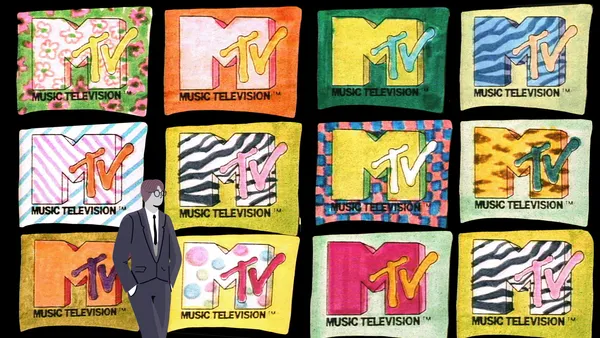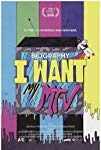Eye For Film >> Movies >> I Want My MTV (2019) Film Review
I Want My MTV
Reviewed by: Jennie Kermode

It’s often said that James Dean invented the teenager in Rebel Without A Cause – but that was on the big screen. On the small screen, it was MTV.
“Music doesn’t work on television,” was the received wisdom in 1980. It was at home on radio; television needed something visual and nobody knew what to do with the first few experiments in music video – that is, until a man called Michael Nesmith, formerly of The Monkees, discussed the subject with his teenage daughter. The result was proposal for a show called PopClips which, he was assured, young people would love. Warner-Amex executive vice president John Lack liked the idea so much that he suggested a whole channel, and on 1 August the following year, MTV was born, prophetically, to the sound of The Buggles’ Video Killed The Radio Star.
“Imagine something you can have at home, something of your very own,” sang Debbie Harry in Dreamin’, one of the first songs to play on the new channel. Few people were watching at that point but those young people who were immediately knew that they’d discovered something special, and word spread fast. This was the first US television programme to be aimed at that age group, the first time the medium had acknowledged that there were people out there who were neither children nor job, home and family-focused, cornflake eating adults waiting to be sold their next job lot of washing powder or golfing accessories. It was television for a new generation. The problem was that it only had a few dozen things to play.
This documentary, which focuses mostly on the channel’s early days, charts its interrelationship with the development of the music video as an art form – one that would, of course, pave the way for many ambitious young directors to make their way into feature films. It looks at how some acts, like Rod Stewart and Devo, immediately recognised the potential of the medium and churned out videos because they knew the desperate channel would have to play to play them, giving their careers a serious boost in the process. Billy Idol discusses the way that the UK got ahead in video production, leading to a ‘second British invasion’ and confronting confused Americans with new phenomena like boys in make-up.
There seems to be some retrospective analysis going on in places. Tyler Glenn of Neon Trees talks about how it was the first time he saw gay people being themselves, whilst watching a clip of George Michael who was still, at that time, very much in the closet. The film looks at the real impact of the channel on minority groups, however, and takes note of ts failings, including a clip of the famous interview in which David Bowie called it out for devoting its space almost exclusively to white people. The suggestion here is the its staff knew what they were doing but were afraid that white Americans wouldn't engage with black music, which was still seen as something very different. Then Michael Jackson came along with Billie Jean and everything changed. We see how, behind the scenes, the channel secretly funded the making of the famous Thriller video under the pretence of making a documentary about it.
Also touched on here is the issue of objectification – what would now be described as the sexualisation of young stars – gleefully exploited by the likes of Madonna and Prince, who knew exactly what they were doing, but something else for bands like Heart, who now talk about how it made them uncomfortable and distracted from what they were trying to achieve as musicians. There’s also an argument that it led to prettiness taking precedence over talent – did Poison end up selling out arenas because they really had something to offer with their music, or because of their cheekbones?
What killed the video star? In conclusion, the film contends that MTV’s success led to the birth of reality TV and that this, along with the internet, signed its death warrant. After all, what music fan watches television any more? But there’s a lot to say along the way, and viewers of a certain age, including those outside the US, will get a nostalgic kick out of this. The music used is sufficiently varied that there will be something to please and something to annoy almost everyone. Structurally, the film is pretty simple but it’s packed with information and has acquired an impressive set of contributors. If you’re not too nervous about Negative Moral Influences, you might want to give it a try.
Reviewed on: 29 Feb 2020

















